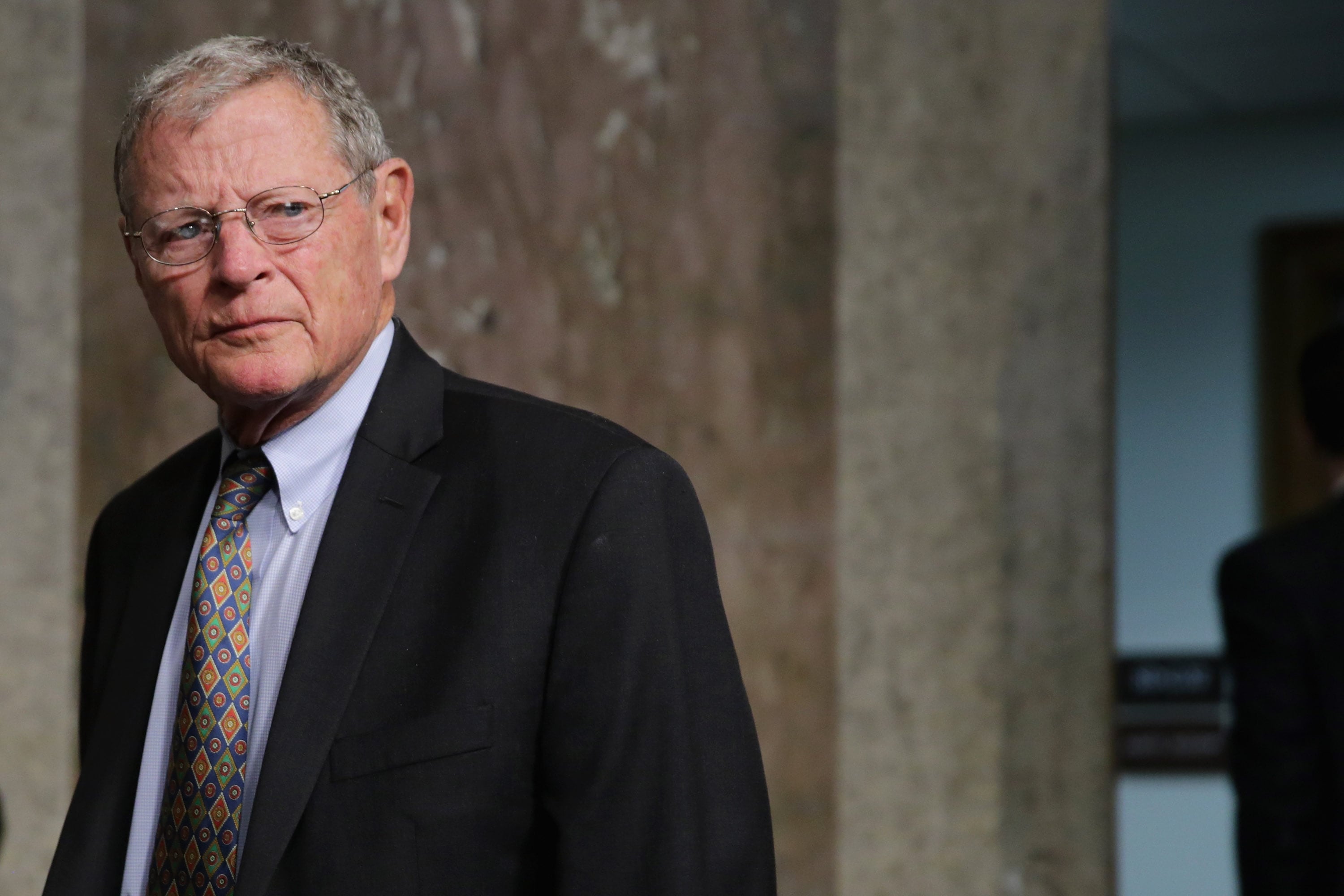WASHINGTON — Oklahoma Sen. James Inhofe, the No. 2 Republican on the Senate Armed Services Committee, wants to make it clear he’s still just the No. 2 Republican on the Senate Armed Services Committee.
He may be the one running the panel’s hearings and answering reporters’ questions. But, Inhofe said, committee Chairman John McCain is still in charge.
“Yes, I’m chairing the meetings, but we’re chairing the meetings consistent with what John feels we should be doing,” Inhofe said an interview for C-SPAN’s Newsmakers this week. “In fact, actually deciding on what hearings we’re having, that’s a decision that’s coming out of the chairman, which is John McCain.
“He’s calling the shots and I’m showing up.”
The 81-year-old McCain, the most influential voice on defense issues on Capitol Hill for the Republican party, hasn’t been in Washington, D.C. yet this year. Instead, the six-term senator has been home in Arizona since mid-December, undergoing treatment for a deadly form of brain cancer.
In McCain’s absence, Inhofe — chairman of the Readiness Subcommittee and the former ranking member of the committee — has presided over three full committee hearings. During Thursday’s “Global Challenges and U.S. National Security Strategy” hearing, he read McCain’s opening statement and handled the absent chairman’s job of overseeing the questioning of witnesses.
But Inhofe has emphasized that this is a temporary and reluctant role for him.
Those comments come as committee staff prepare the panel’s annual defense policy bill and await hearings on the Pentagon’s budget request — expected in mid-February. The work involves dozens of high-profile hearings with defense officials and even more behind-the-scenes meetings with staff, all of which in the past few years have had McCain’s distinct voice and stamp on them.
This year looks like it will be different, although McCain has worked to remained active in the public eye even during his absence from the Capitol.
On Jan 17, the Washington Post ran a McCain guest column admonishing the president on press freedom, the same day he offered public congratulations to former Senate colleague Bob Dole on receiving the Congressional Gold Medal. This week, he introduced a bill with fellow Arizona Republican Sen. Jeff Flake to ban earmarks and appeared in a Politico interview on the administration’s new national security strategy.
He also weighed in from afar on the brief government shutdown, lecturing his colleagues that “holding our men and women in uniform hostage to other demands is a dereliction of our first duty as members of Congress to provide for the common defense.”
But McCain hasn’t been present to vote, which caused a headache for the Senate’s GOP leadership on Wednesday. When the Senate deadlocked on confirmation of Kansas’s pro-life Gov. Sam Brownback to be the ambassador at large for international religious freedom, Vice President Mike Pence had to be called in to break the tie.
But McCain isn’t holding his frequent gaggles with reporters in the Senate hallways to provide a GOP voice critical of President Donald Trump or to explain his priorities for the upcoming budget fights. And Inhofe acknowledged that the questions he poses to hearing witnesses are very different from the ones that McCain would ask if he were in the room.
For example, Inhofe recently told reporters he does not share McCain’s concerns about the concentration of defense industry executives currently serving in the Pentagon. He sees their expertise as an advantage, not a detriment.
“I go down to Fort Worth, where they’re cranking this stuff out, a lot of the F-35 stuff is down there, and I think ’How much more does this stuff cost us because we’re not listening to the logic of the people who are making this stuff?” he said.
McCain’s tough questioning style, he said, “is not my style—but I know he’s sincere. He builds his case on the F-35, and I can’t argue that,” he said. “We need to have tight reigns, we need to hold them the best we can, but my style would be to work with them a little closer.”
For now, committee members aren’t reporting any major concerns with changes. Ranking Member Jack Reed, D-R.I., called the arrangement between McCain and Inhofe “standard procedure” as Inhofe is the committee’s next senior Republican.
Sen. Lindsey Graham, R-S.C., said he spoke with his friend John McCain last week. McCain is making progress in his physical rehabilitation, Graham said.
“I was very pleased,” Graham said. “We laughed, we cried, it was good. So I’m hopeful he comes back soon.”
Joe Gould was the senior Pentagon reporter for Defense News, covering the intersection of national security policy, politics and the defense industry. He had previously served as Congress reporter.
Leo covers Congress, Veterans Affairs and the White House for Military Times. He has covered Washington, D.C. since 2004, focusing on military personnel and veterans policies. His work has earned numerous honors, including a 2009 Polk award, a 2010 National Headliner Award, the IAVA Leadership in Journalism award and the VFW News Media award.





